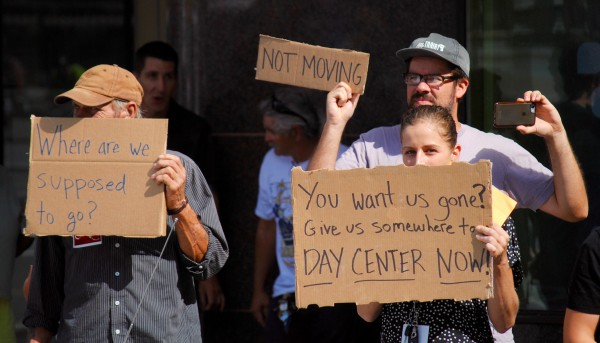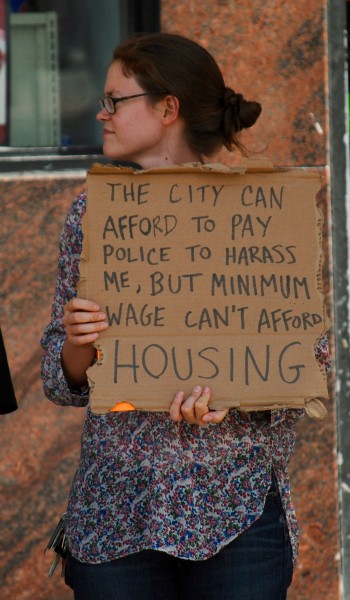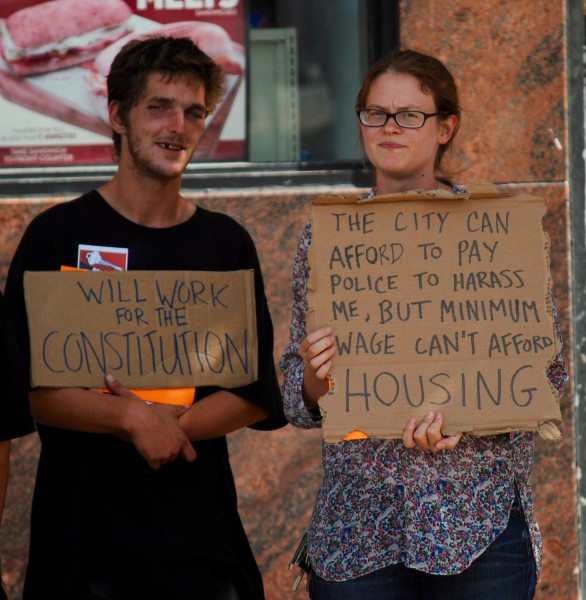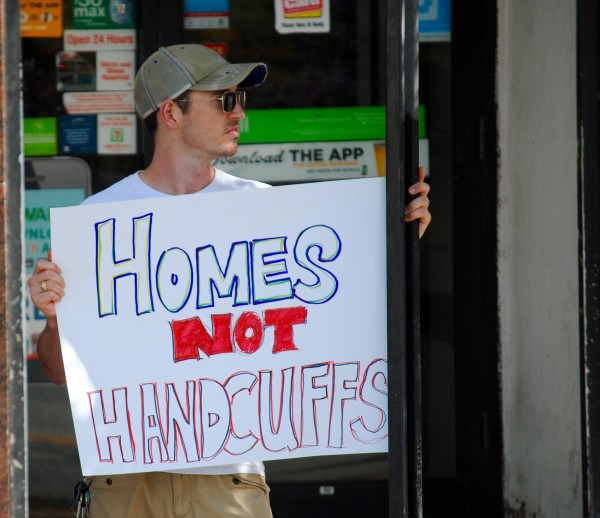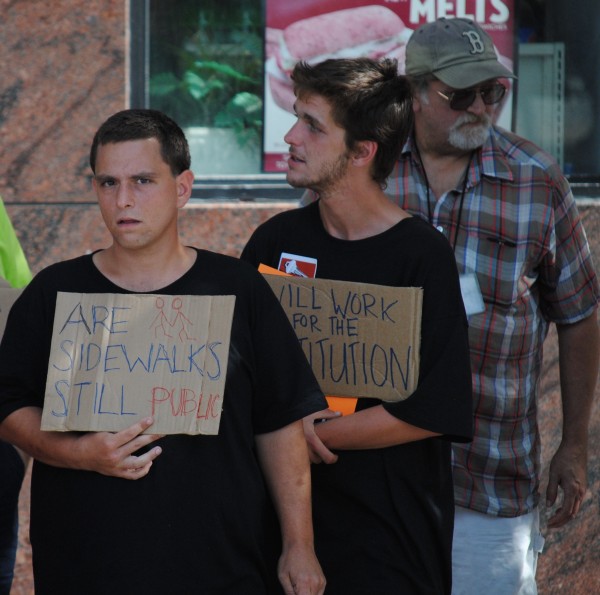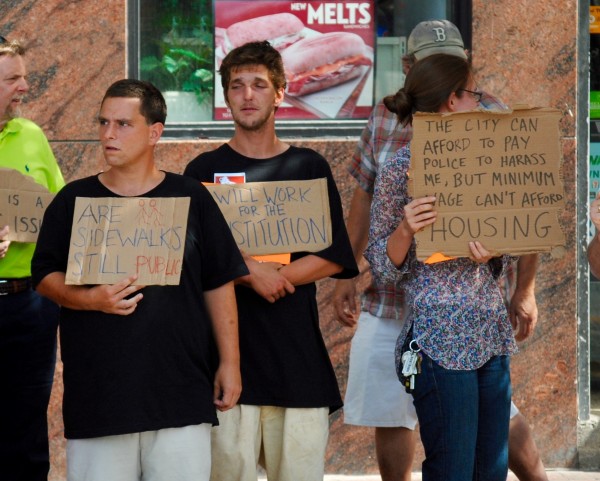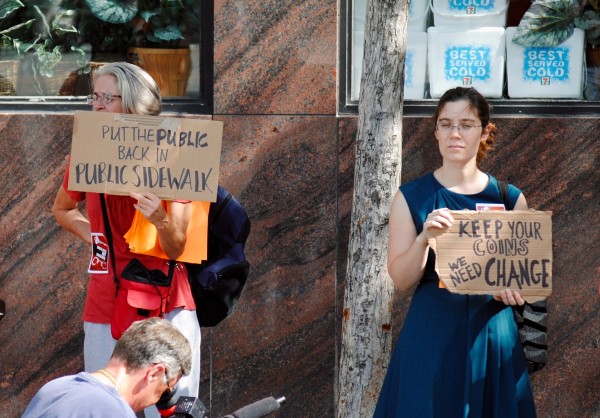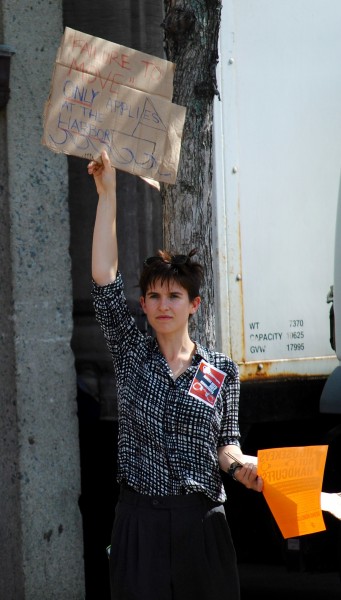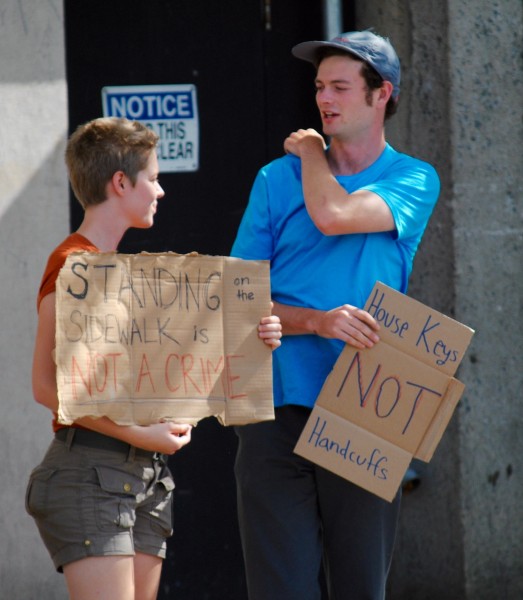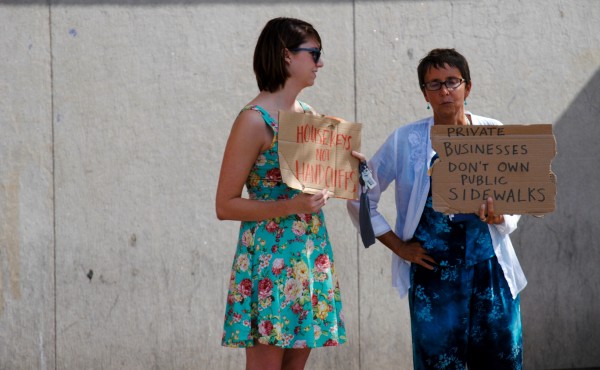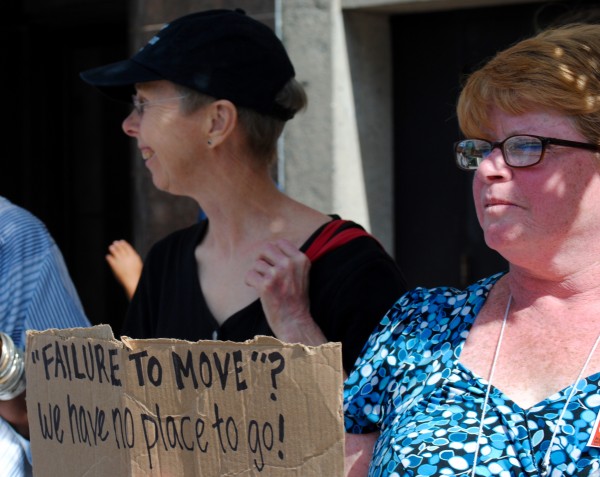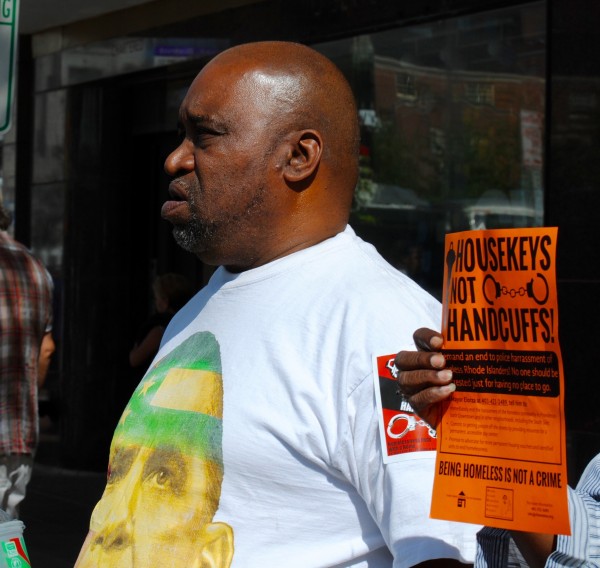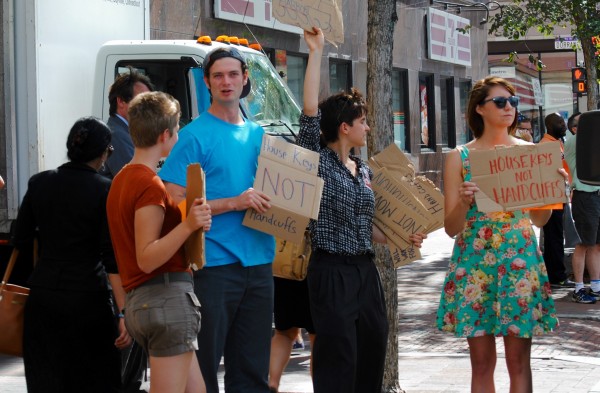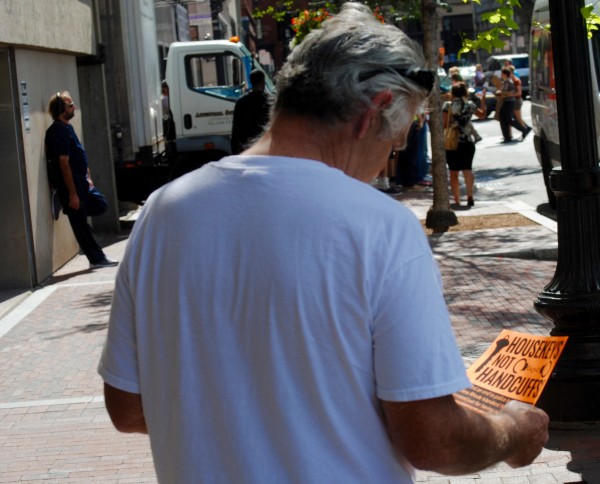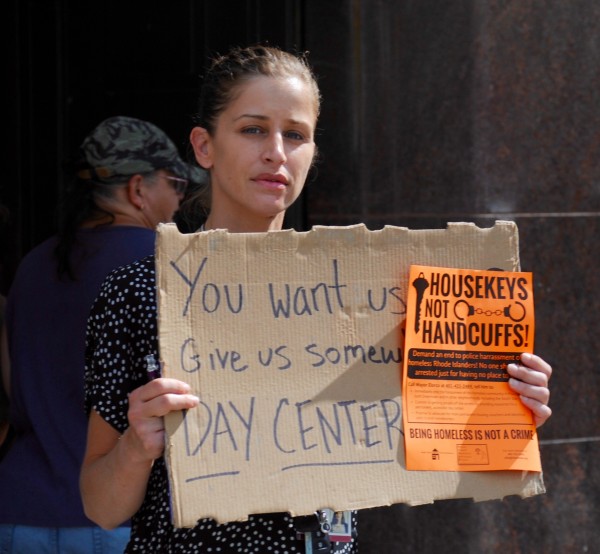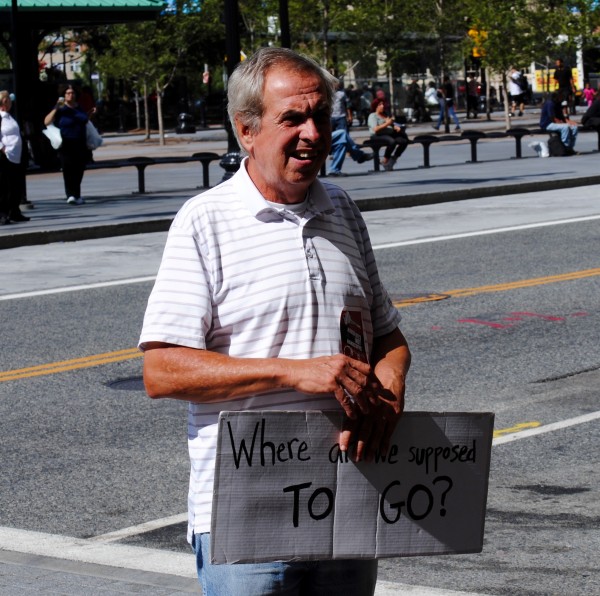
On August 28, 2005, ten years ago today, New Orleans Mayor Ray Nagin issued a mandatory evacuation order to the residents of one of America’s oldest cities. But due to infrastructure failure and mismanagement on the part of the state and federal government, the next days and weeks were defined as some of the worst moments in the new century. Black Agenda Report executive editor Glenn Ford has described the response as a genocide. Leaving aside the issue of the levies, global warming, and a host of other things that caused by prior actions, it is impossible to look at the behavior of the neoliberal government afterwards and deny what Ford is saying.
The white-owned media, starved in the dog days of summer for sensationalism and headlines, used the imagery of African Americans fighting for their lives as the stock footage for some of the most disgusting, racist, untrue stories imaginable. Remember the story of children being raped and murdered in the Superdome? That never happened. It is of course impossible to say that absolutely no sexual assaults happened in the post-hurricane Big Easy, and doing so would be problematic. But the Superdome was not a massive bacchanal, with bodies littering the floor and black men behaving as rabid beasts. In fact, there were only six total deaths in the Dome. The Seattle Times wrote a month later:
Of those, four died of natural causes, one overdosed and another jumped to his death in an apparent suicide, said Beron, who personally oversaw the handoff of bodies from a Dome freezer, where they lay atop melting bags of ice…“I think 99 percent of it is [expletive],” said Sgt. 1st Class Jason Lachney, who played a key role in security and humanitarian work inside the Dome. “Don’t get me wrong — bad things happened. But I didn’t see any killing and raping and cutting of throats or anything … 99 percent of the people in the Dome were very well-behaved.”
Of course, this is nothing new. Fifty years to the day before, August 28, 1955, a young man named Emmett Till was murdered for flirting with a white woman. With a head deformed by a severe beating, he had a bullet hole above his right ear and an eye dislodged when they pulled his naked, swollen body from the Tallahatchie River in Mississippi. His body was unrecognizable, but his mother insisted on a public funeral with an open casket so that the world would see the true face of Jim Crow. Till’s murder, just like mythical Superdome rapes, were instances of white over-reaction to and demonization of black males and their sexuality, something that defines this nation. Indeed, when captured African men were auctioned as if livestock on the Providence water front, one of the selling points was their sexual ability and prowess.
This was far from the only sin of the white media regarding Katrina. Remember the blatant hypocrisy around looting? When the news cameras showed whites breaking into stores, they were searching for food, but when blacks did the exact same thing, it was robbery. Referring back to The Guardian, we read the following:
By the end of last week the media in Baton Rouge reported that evacuees from New Orleans were carjacking and that guns and knives were being seized in local shelters where riots were erupting.
The local mayor responded accordingly.
“We do not want to inherit the looting and all the other foolishness that went on in New Orleans,” Kip Holden was told the Baton Rouge Advocate.
“We do not want to inherit that breed that seeks to prey on other people.”
The trouble, wrote Howard Witt of the Chicago Tribune is that “scarcely any of it was true – the police confiscated a single knife from a refugee in one Baton Rouge shelter”.
“There were no riots in Baton Rouge. There were no armed hordes.”
But this also was not new. On August 28, 1949, Paul Robeson, the black performer, civil rights activist, and supporter of the Soviet Union, was nearly killed for the crime of trying to sing. In Peekskills, NY, Robeson, Pete Seeger, and several other musicians decided to hold a fundraising concert for the Civil Rights Congress. But due to Robeson’s statements about racism in America as compared to the USSR, the heat of the Red Scare, and hysterical anti-Communism/anti-Semitism in the crowd fostered by The Chamber of Commerce, Jaycees, Kiwanis Club, and Knights of Columbus, there was a riot. Robeson’s car was pummeled with stones and over 140 people were injured. Apparently the crime of being black has not ceased to carry such a dangerous sentence.
If we return to The Guardian for one more passage, we can see again another instance of white over-reaction. They write:
…[W]hen the first convoy of national guardsmen went into New Orleans approached the convention centre they were ordered to “lock and load”.
But when they arrived they were confronted not by armed mobs but a nurse wearing a T-shirt that read “I love New Orleans”.
“She ran down a broken escalator, then held her hands in the air when she saw the guns,” wrote the LA Times.
“We have sick kids up here!” she shouted.
“We have dehydrated kids! One kid with sickle cell!”
This sort of over-reaction also occurred two other times on August 28. In 1963, six years to the day since Strom Thurmond had taken the floor of the Senate to filibuster the 1957 Civil Rights Act, Martin Luther King, Jr. delivered his I Have A Dream speech at the historic March on Washington. Of course, contemporaries of King tell a much move vivid story. Malcolm X, who was an adamant critic of King’s work with the Democratic Party of John F. Kennedy and Lyndon B. Johnson, said in his Message to the Grassroots:
It was the grass roots out there in the street. Scared the white man to death, scared the white power structure in Washington, D. C. to death; I was there. When they found out that this black steamroller was going to come down on the capital, they called in Wilkins; they called in Randolph; they called in these national Negro leaders that you respect and told them, “Call it off.” Kennedy said, “Look, you all letting this thing go too far.”… They said, “These Negroes are doing things on their own. They’re running ahead of us.” And that old shrewd fox [Kennedy], he said, “Well If you all aren’t in it, I’ll put you in it. I’ll put you at the head of it. I’ll endorse it. I’ll welcome it. I’ll help it. I’ll join it.”… Once they formed it, with the white man over it, he promised them and gave them $800,000 to split up between the Big Six; and told them that after the march was over they’d give them $700,000 more… Soon as they got the setup organized, the white man made available to them top public relations experts; opened the news media across the country at their disposal; and then they begin to project these Big Six as the leaders of the march. Originally, they weren’t even in the march… That’s where the march talk was being talked…They took it over…They didn’t integrate it; they infiltrated it… And as they took it over, it lost its militancy. They ceased to be angry. They ceased to be hot. They ceased to be uncompromising. Why, it even ceased to be a march. It became a picnic, a circus… No, it was a sellout. It was a takeover…They controlled it so tight — they told those Negroes what time to hit town, how to come, where to stop, what signs to carry, what song to sing, what speech they could make, and what speech they couldn’t make; and then told them to get out town by sundown… It was a circus, a performance that beat anything Hollywood could ever do, the performance of the year.
As those two activists moved forward, they began to dissolve their enmity. King, for his part, became disgusted with the Democrats and broke with them by speaking out against the Vietnam War, which was taking funds away from Johnson’s anti-poverty programs. And Malcolm, after breaking with the Nation of Islam, began to develop a vision of a pan-African united front that would be open to working alongside King and other groups he had previously called ‘Uncle Toms’. Sadly, gun violence would take both of them before they could enact a vision of liberation, to the detriment of people of color.
In the decade following Katrina, thousands of black New Orleans natives were permanently displaced while those who took their place used the city as a petri dish for neoliberal experimentation. Margaret Kimberly, also of Black Agenda Report, writes eloquently:
But this tragedy for multitudes was a gift to powerful people who wanted to turn New Orleans into Exhibit A for neo-liberalism… Overnight, New Orleans lost a huge portion of its poor, black population. The state legislature used the crisis to arbitrarily declare public schools as “failing” and converted them into charters. They fired 7,500 public school employees who won decisions in lower courts but were undone when the U.S. Supreme Court declined to hear their case… In 2010…Arne Duncan said that the hurricane was “the best thing to happen to education in New Orleans.” As education secretary his goal has been to undo public education as we know it and expand the control of charter schools throughout the country. Parents have no rights in the charter school system but that is why they are desirable to people like Duncan…
This onslaught continues today throughout the country. Here in Rhode Island, we are subjected by putsches by these un-educational farces on a regular basis. Right now, as you read this, there is a hunger strike going on in Rahm Emmanuel’s Chicago by parents and community members outraged by the closure of Dyett High School and the roll-out of a school privatization regime. But there have also been two developments that could result in amazing consequences for teachers in charter schools: the right to unionize.

First, on May 11, teachers at Paulo Freire Social Justice Charter School in Holyoke, MA announced their decision to organize via the Industrial Workers of the World. In their announcement, they said:
…[T]his institution’s authoritarian leadership has become an obstacle to community solidarity between teachers, staff, students, and the community at large, producing a daily feeling of coming up against “brick walls” and experiencing disillusionment, apathy, indifference, sadness, and a sense of powerlessness that many teachers and students feel regarding their inability to self-determine their educational/learning and communal involvement…we now proudly stand as members of the Industrial Workers of the World, the union for all workers, and vow from this day forward to fight for the principles for which Paulo Freire stood and upon which this charter was founded—social justice and equity at all levels, encompassing both job security and wage equality for all workers from subs and essentials teachers to administrative staff to teachers, students, parents, and community members in association with the Paulo Freire Social Justice Charter School.
Meanwhile, a recent decision by a National Labor Relations Board official in Detroit has created the precedent to allow Teach for America members, long seen as ‘scabs’ by the unions, to vote in NLRB organization polls. When a body of employees decides they want to form a union, they notify the NLRB, who then hold a poll where the employees vote ‘yea’ or ‘nay’ to form a government-recognized union. Previously, Teach for America members were not allowed to do so, but this decision in June allowed TFA members, some of whom were major forces in the organization drive, to cast a ballot. The decision is not binding for all votes, and furthermore, the election ended with a ‘nay’ vote, meaning the employees did not form a union. But it does set an important precedent that can be cited by other organizing drives in the future. Unionized charter schools would result in better pay for teachers and a more democratized order for parents to work with educators so to improve the gaping flaws in the pedagogical method of the charter school industrial complex.
August 28, 1883 was the day that the British abolished slavery across the empire. After 132 years, people of color are far from free. The neoliberal kulturkampf, refined in the Chicago School of Economics that Obama pulled key economic advisors from, continues to work towards a social order where black and brown people are uneducated, poor, and working low-or-no-wage jobs, preferably as part of work details for privatized prisons, or as Michelle Alexander calls it, The New Jim Crow.
It is incumbent on those who can afford the luxury to work for a better social order rather than to rely on our two-party dictatorship of the the plutocratic. Neoliberalism is an agenda that crosses party lines and has defined the trajectory of the political order for a generation. We have allowed ourselves to abandon class-based politics and instead have become an electorate that votes based on social issue dog-whistle political positions, like abortion or same-sex marriage. Those are important issues, but part of the challenge is re-defining the conversation into one that deals with the liberation of women or LGBTQQI people and understanding the intersectionality of race, sex, gender, orientation, reproductive freedom, and class. The idea of a ‘color-blind’ society is absurd, we cannot eradicate the hindrances the false construct of race has placed on our society. But we can embrace our differences and work towards a more democratic order, one that values diversity and challenges the white patriarchal neoliberal hegemony in all its ugly forms.
That sort of unity will be as powerful as a hurricane.
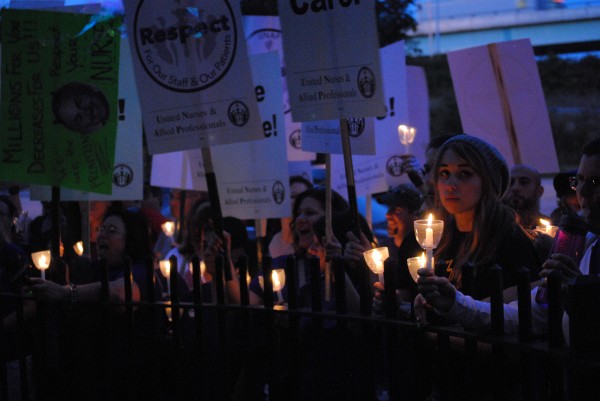 Members of the United Nurses and Allied Professionals (UNAP), Local 5098, at Rhode Island Hospital, with labor and community allies, held a candlelight vigil and march Thursday evening to call attention to to unsafe staffing levels and other problems that continue to remain an issue in negotiations. UNAP members have been working without a contract since June 30th.
Members of the United Nurses and Allied Professionals (UNAP), Local 5098, at Rhode Island Hospital, with labor and community allies, held a candlelight vigil and march Thursday evening to call attention to to unsafe staffing levels and other problems that continue to remain an issue in negotiations. UNAP members have been working without a contract since June 30th.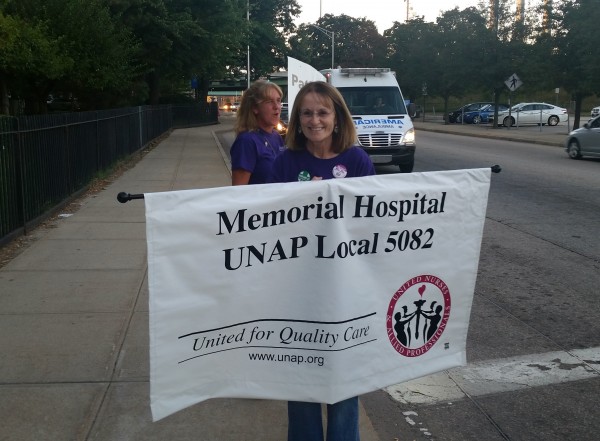
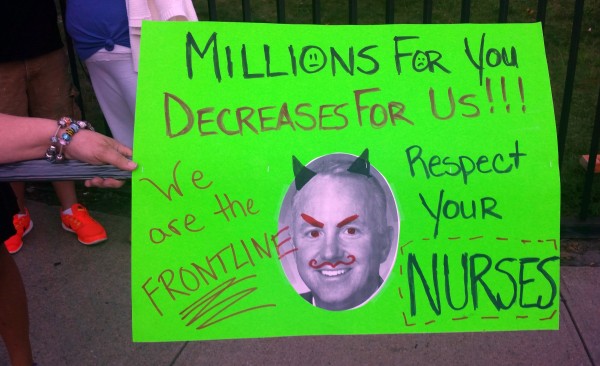
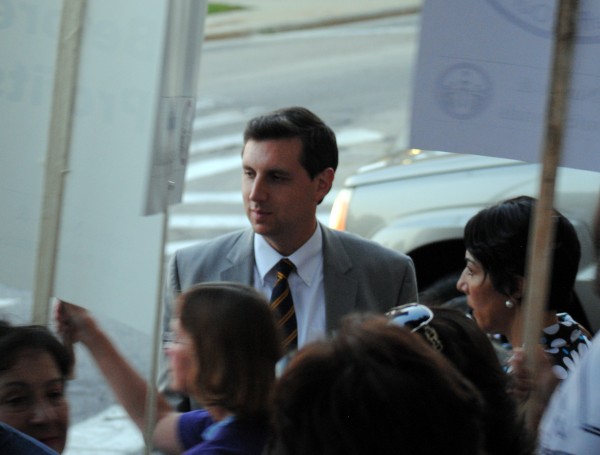
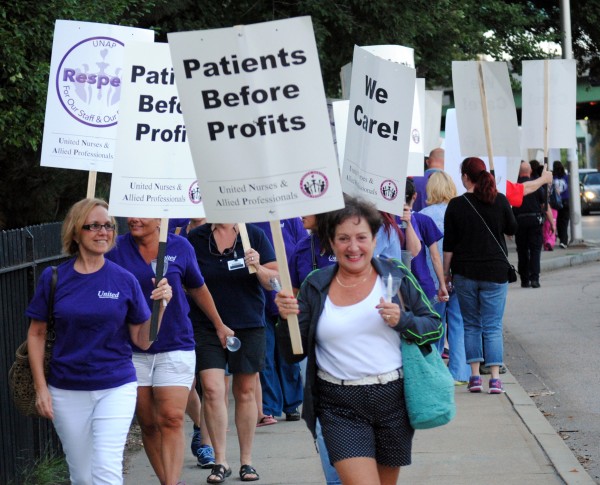
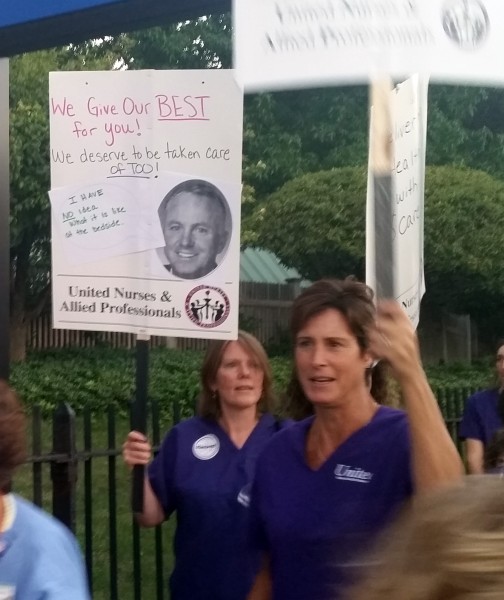
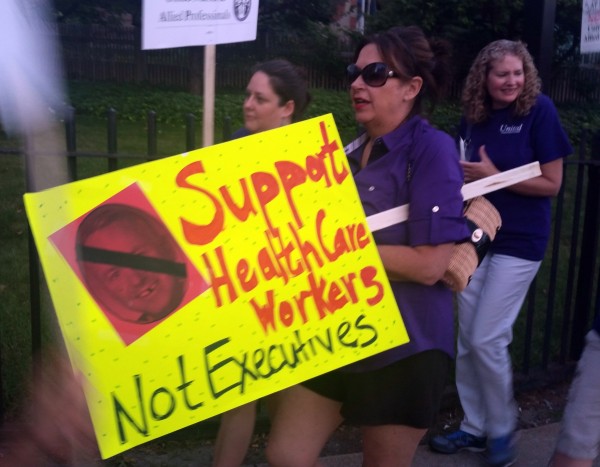
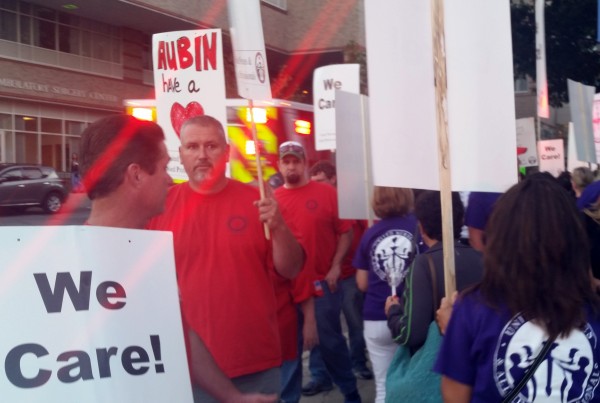
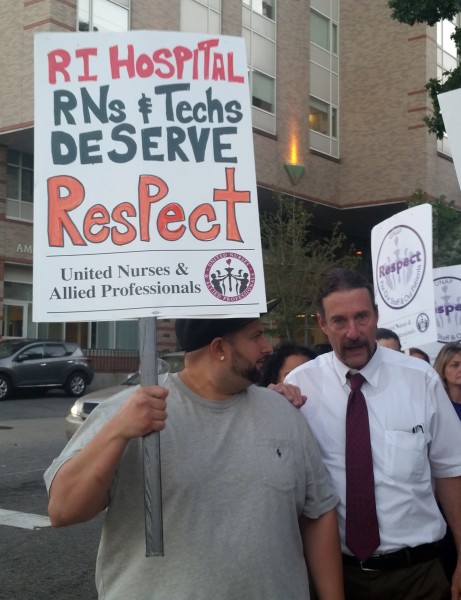
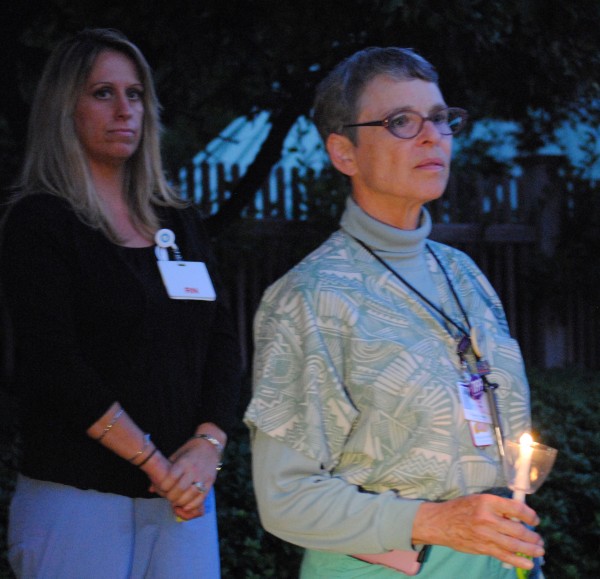
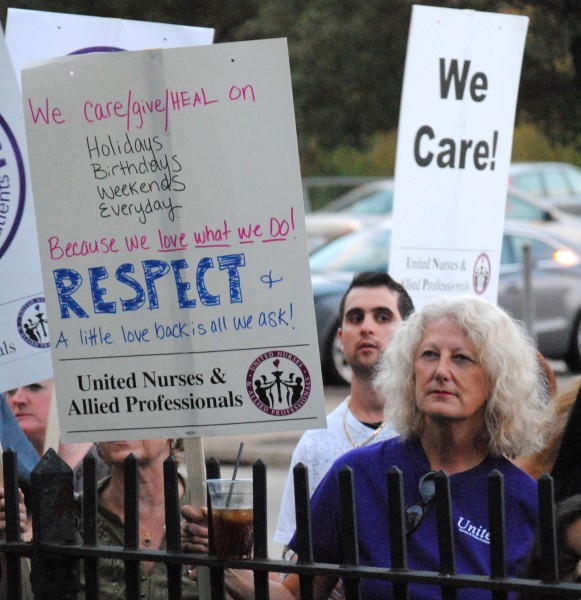
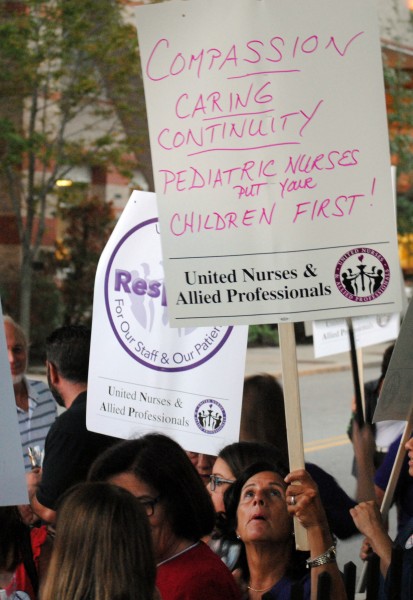
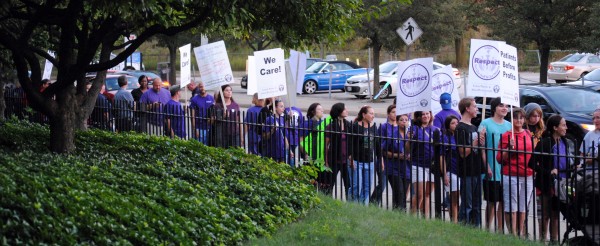

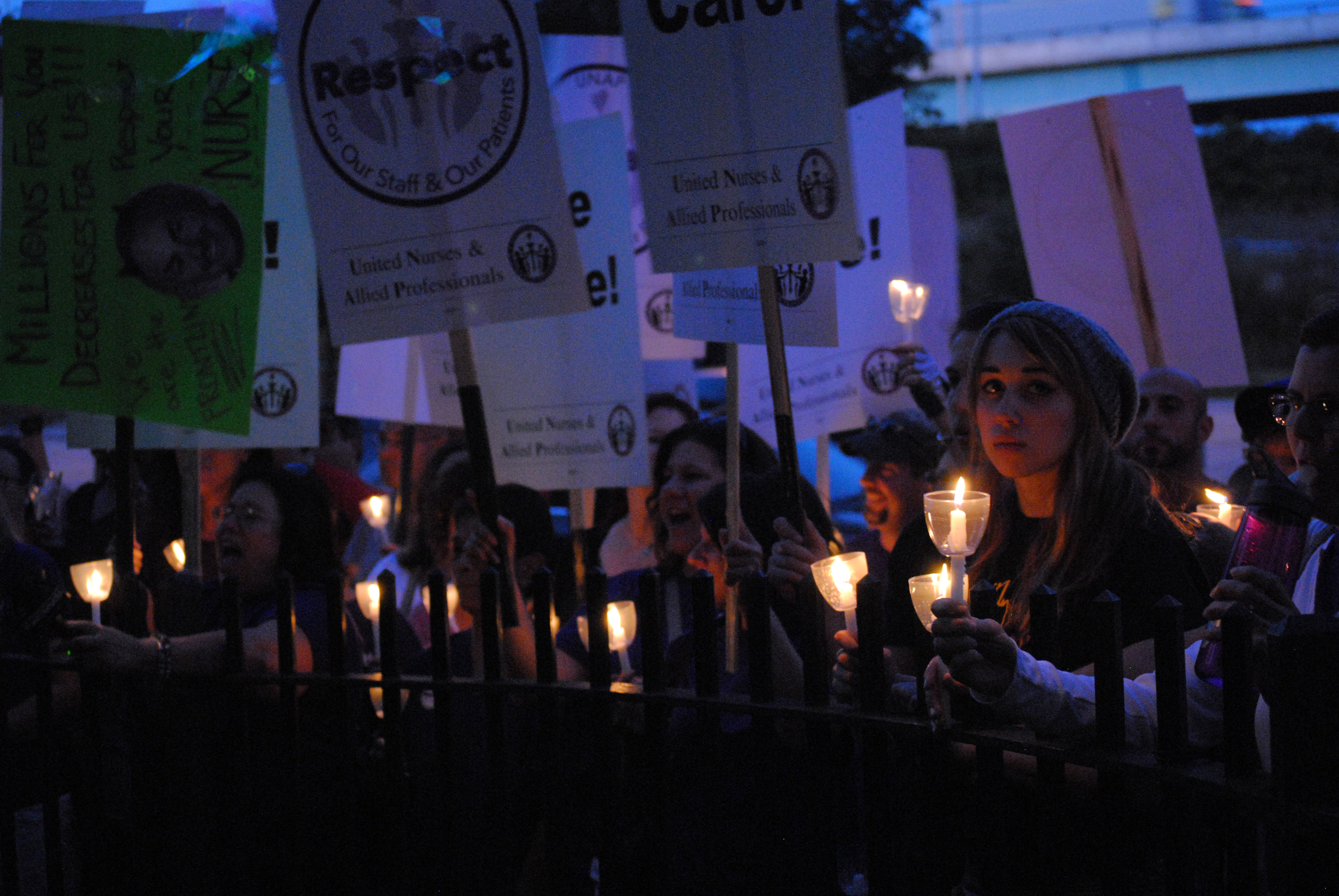

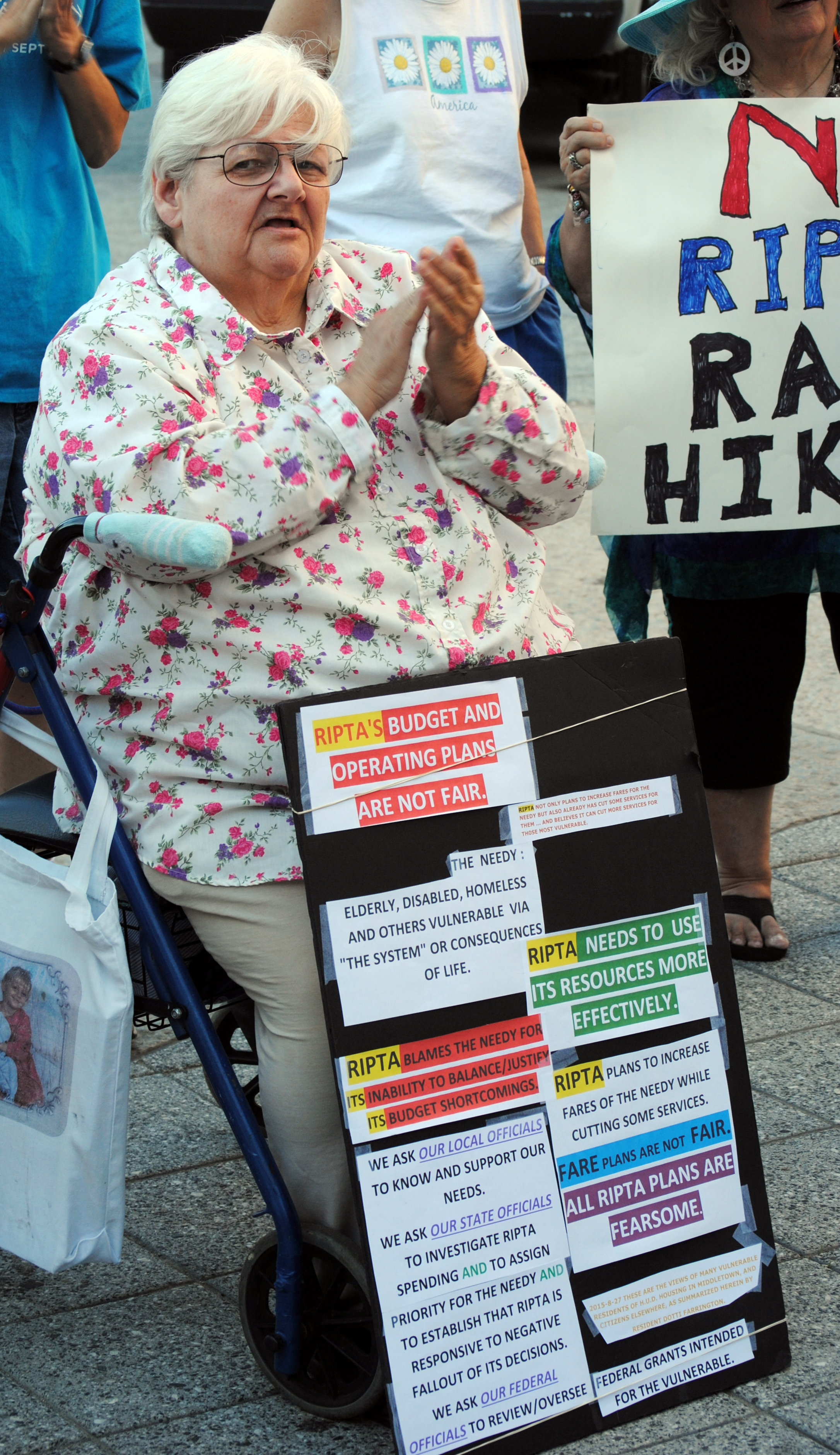
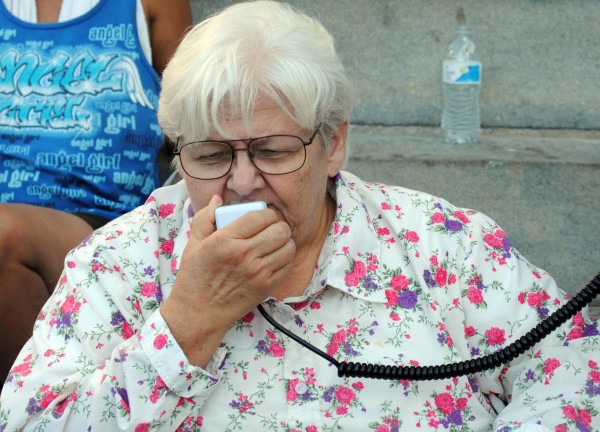 RIPTA Riders Alliance, an advocacy group for bus riders, held a
RIPTA Riders Alliance, an advocacy group for bus riders, held a 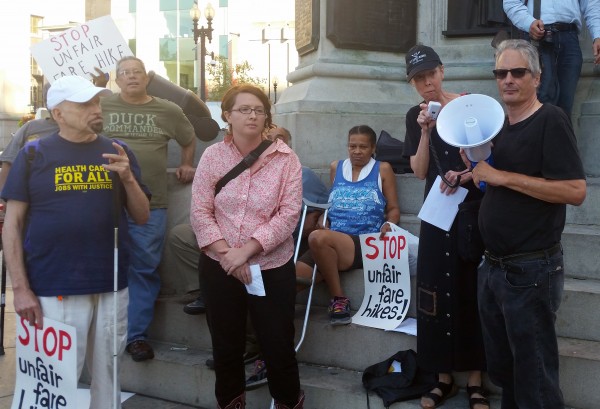 RIPTA Riders Alliance release a list of cities and states with bus systems of comparable size to RIPTA. The average fare in these systems in $1.60 for regular riders, 40 cents lower than RIPTA. The average rate for seniors and disabled riders is 68 cents. RIPTA Riders Alliance wants RIPTA to find savings via internal
RIPTA Riders Alliance release a list of cities and states with bus systems of comparable size to RIPTA. The average fare in these systems in $1.60 for regular riders, 40 cents lower than RIPTA. The average rate for seniors and disabled riders is 68 cents. RIPTA Riders Alliance wants RIPTA to find savings via internal 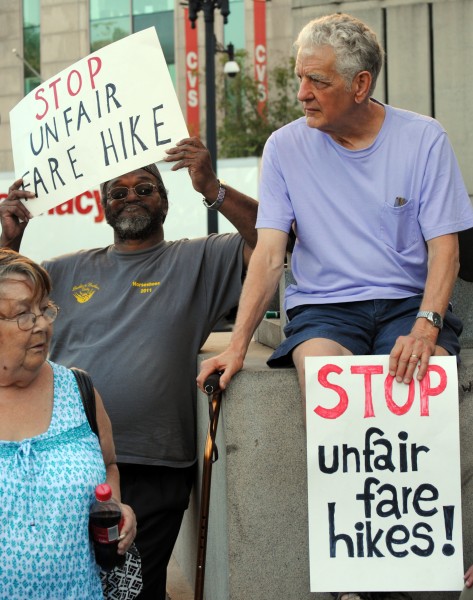
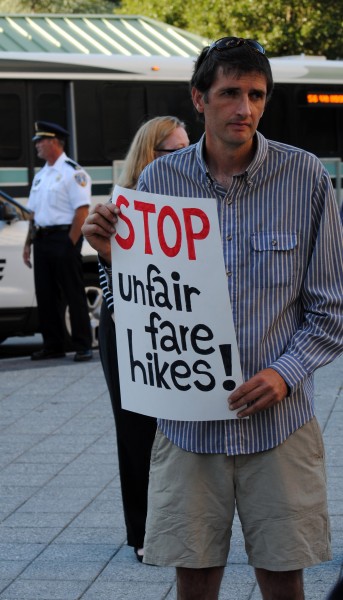
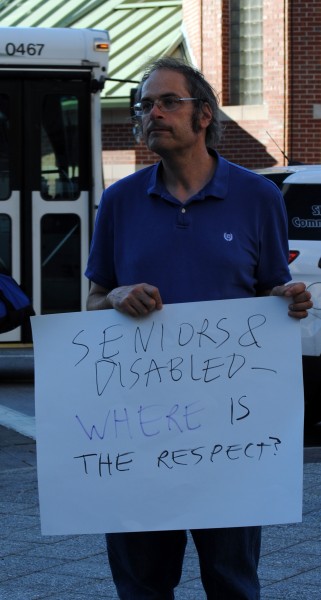

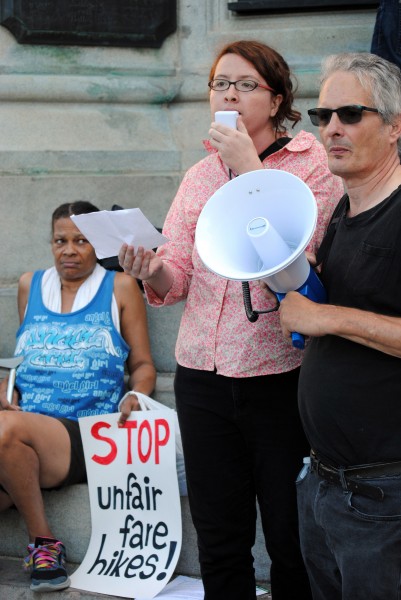
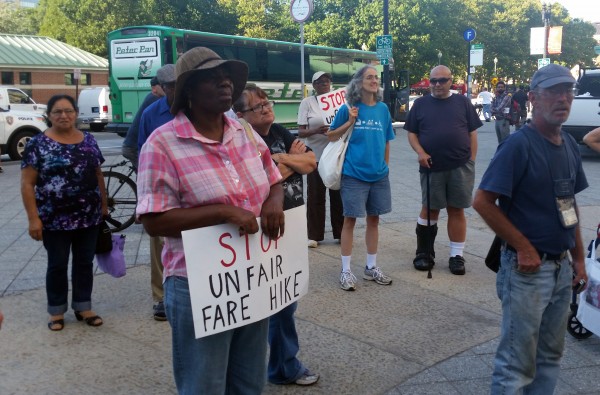
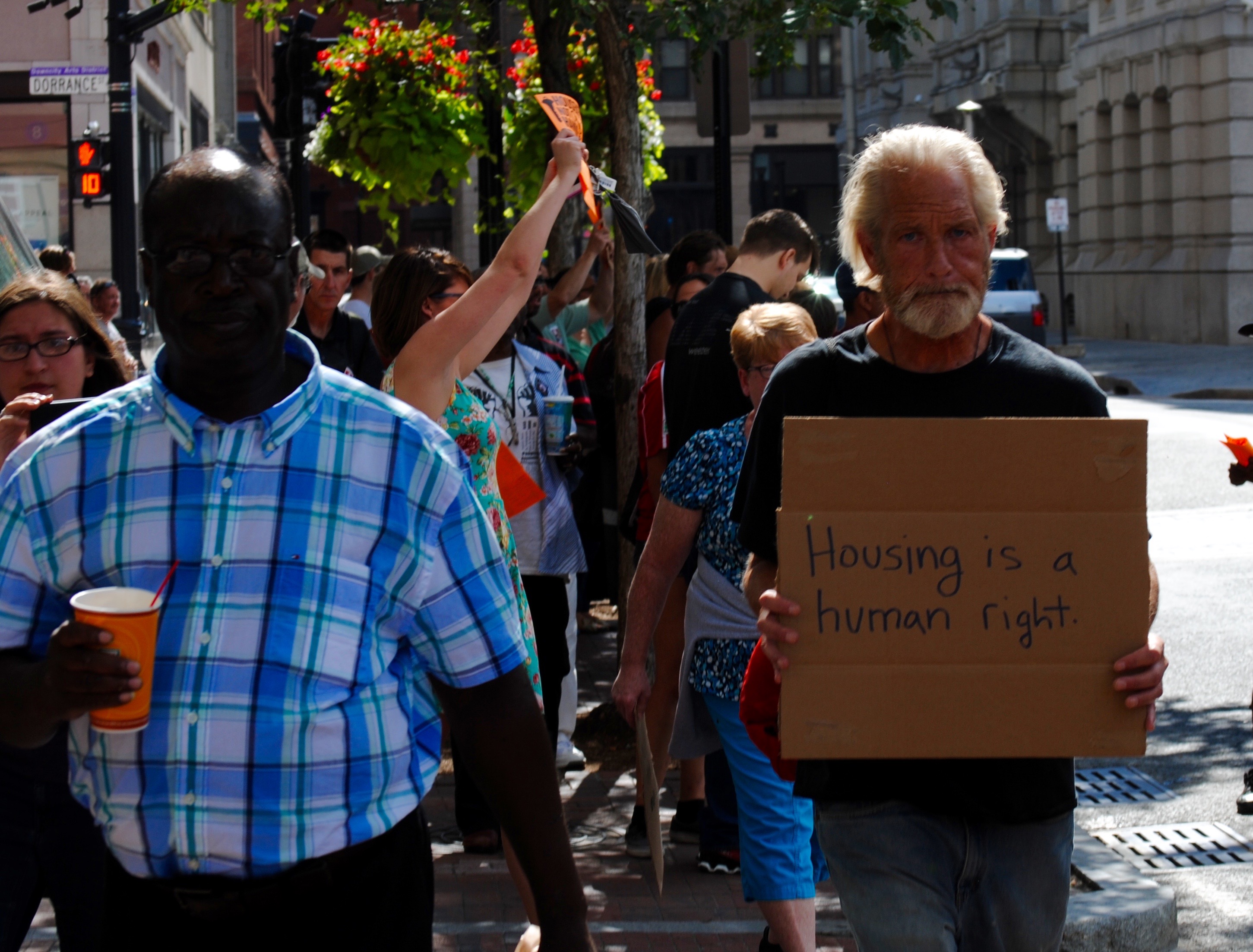
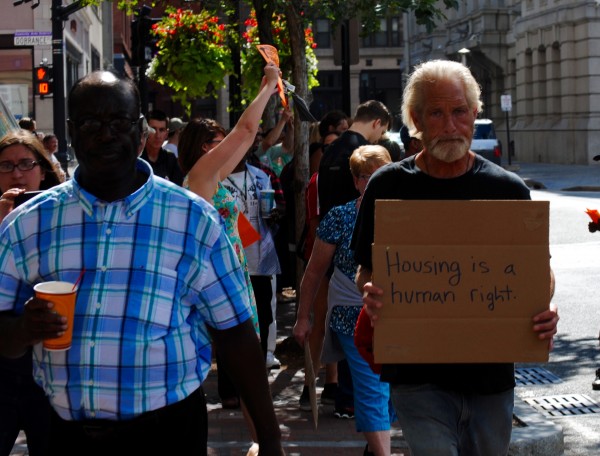 More than 50 homeless and community advocates protested and confronted the police on Thursday afternoon in front of CVS near Kennedy Plaza within sight of Providence City Hall. At least 14 police officers were on hand, though no arrests were made. The protesters carried signs demanding an end to “a noticeable increase of harassment of homeless folks around the city.”
More than 50 homeless and community advocates protested and confronted the police on Thursday afternoon in front of CVS near Kennedy Plaza within sight of Providence City Hall. At least 14 police officers were on hand, though no arrests were made. The protesters carried signs demanding an end to “a noticeable increase of harassment of homeless folks around the city.”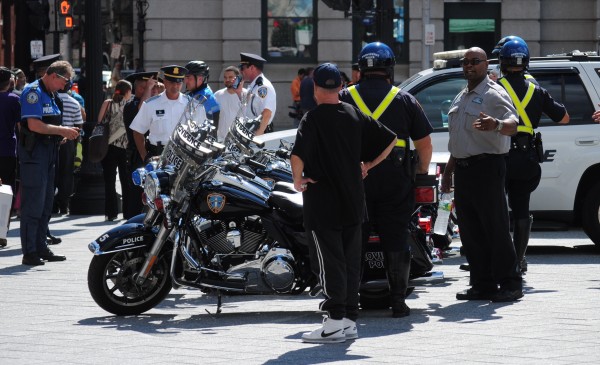 The police officers told Kurland that she was in violation of “failure to move,” a non-existent offense with “no legal basis in city ordinance or state statute,” that is often used to threaten and harass homeless people, according to RICH. When Kurland explained that there was no such law, she was arrested
The police officers told Kurland that she was in violation of “failure to move,” a non-existent offense with “no legal basis in city ordinance or state statute,” that is often used to threaten and harass homeless people, according to RICH. When Kurland explained that there was no such law, she was arrested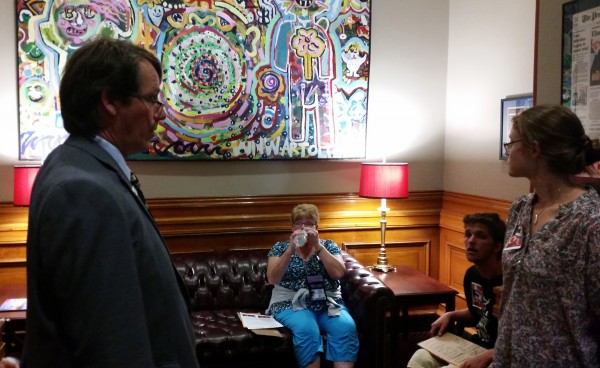
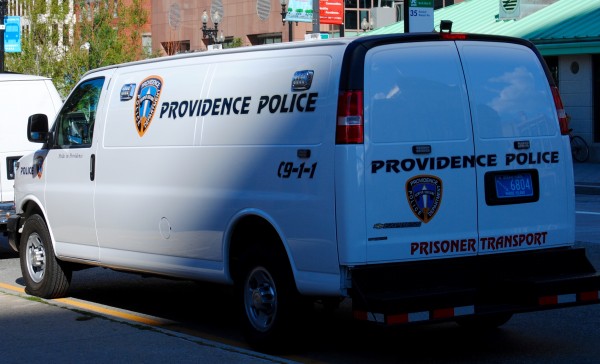 The police were in fact ready with plastic handcuffs hanging from their belts and two “paddy wagons” parked on the opposite side of Kennedy Plaza. During the protest the police made a large show of force that included at least one officer videotaping the crowd, for reasons that are unclear. The Providence Police are often videotaping crowds at such events, but do not seem to have any policies in place regarding the use of such video.
The police were in fact ready with plastic handcuffs hanging from their belts and two “paddy wagons” parked on the opposite side of Kennedy Plaza. During the protest the police made a large show of force that included at least one officer videotaping the crowd, for reasons that are unclear. The Providence Police are often videotaping crowds at such events, but do not seem to have any policies in place regarding the use of such video.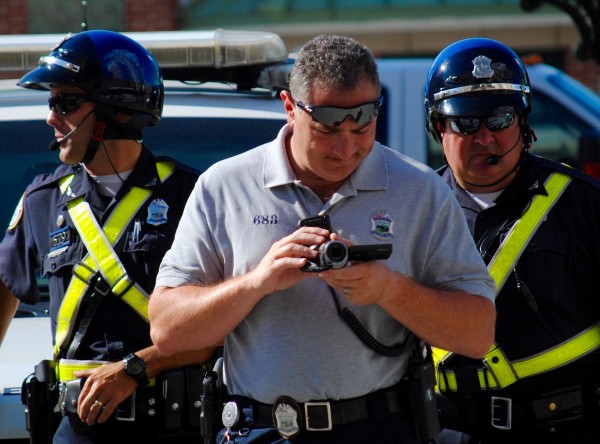 RICH drew attention to a report from the National Law Center on Homelessness and Poverty, which “details the ways in which criminalizing ordinances are damaging both to individuals experiencing homelessness and to the cities that enact them. It also found that, despite a lack of affordable housing and shelter space, cities across the country are essentially making it illegal to be homeless with laws that outlaw life-sustaining acts, such as eating and sleeping, in public spaces.”
RICH drew attention to a report from the National Law Center on Homelessness and Poverty, which “details the ways in which criminalizing ordinances are damaging both to individuals experiencing homelessness and to the cities that enact them. It also found that, despite a lack of affordable housing and shelter space, cities across the country are essentially making it illegal to be homeless with laws that outlaw life-sustaining acts, such as eating and sleeping, in public spaces.”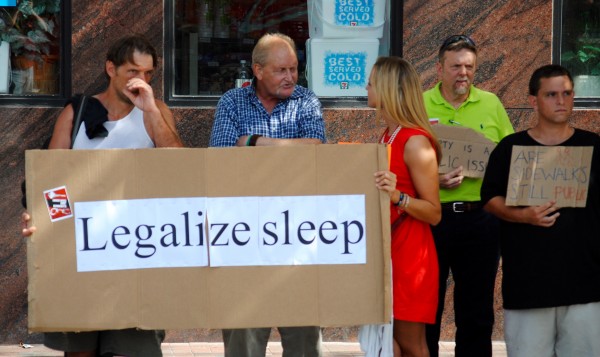 RI famously passed a “
RI famously passed a “